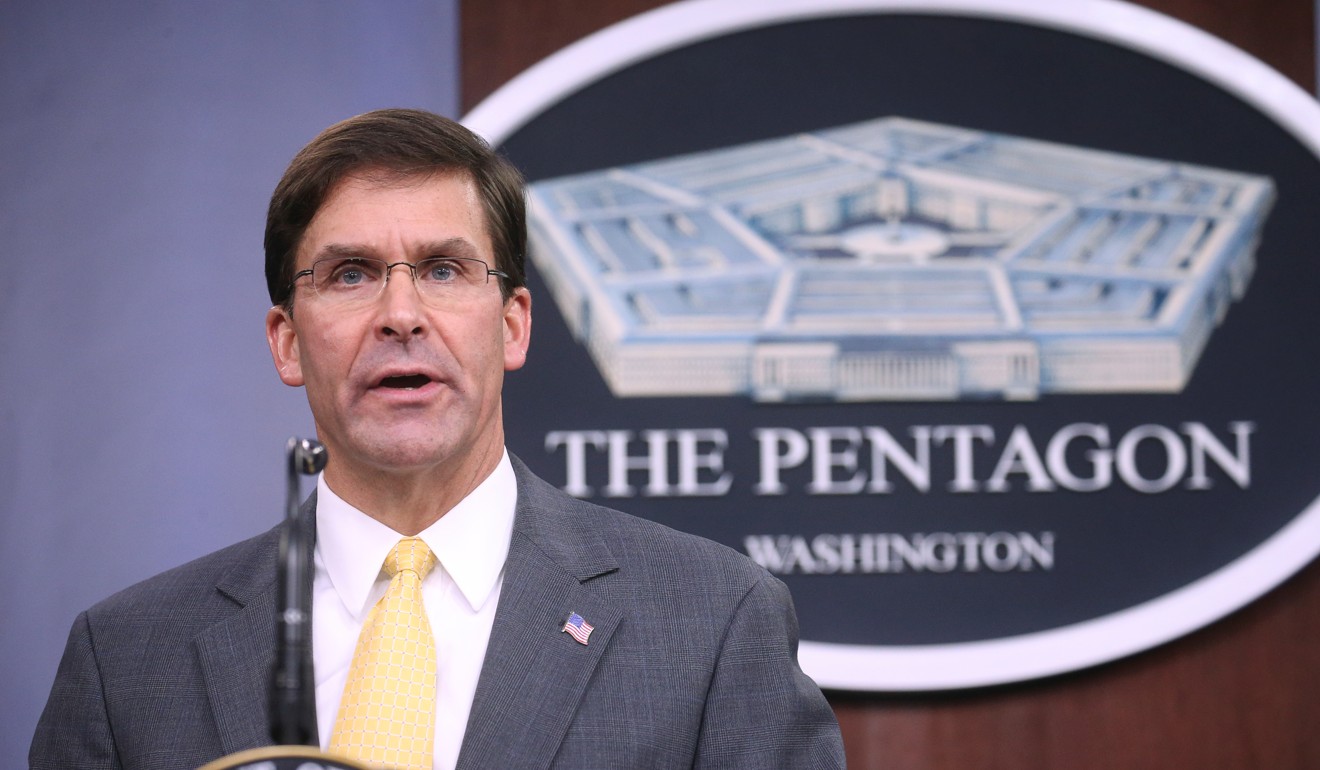
US defence secretary tells Europe to take back Islamic State fighters or risk further conflict
- Around 2,000 foreign fighters, many from Europe, are currently being held in makeshift jails by Kurdish-led forces in northeast Syria

“It’s an untenable situation,” Esper said in a briefing on the first day of a two-day visit to London. “How long can this last? Our view has been they should repatriated and dealt with appropriately … otherwise that’s a risk to the region.”
Canada confirms it doesn’t want ‘Jihadi Jack’ back, either
Esper, who is expected to meet the UK’s defence secretary, Ben Wallace, on Friday, said he was relaying a message from the US administration. “We are asking a lot of the folks that are holding them, the Kurds,” Esper added.

Wallace, in his previous role as security minister, said in 2018 that it was not possible to try them under UK law, and that they must instead be sent to the US. However, Washington is refusing to assure the UK that they would not face the death penalty there.
Elsheikh’s mother has brought a case to the supreme court asking that they be put on trial in the UK. Her lawyers argued in front of Britain’s highest court that there was enough evidence to bring them to the UK for trial.
Concerns have also been raised by the US that the conditions in which foreign fighters are held could radicalise them further, with some officials raising the prospect there could be a repeat of what happened in Iraq a decade ago.
Islamic State’s US$300 million war chest to plot world terror
Many of the men who ended up leading Isis, including its leader, Abu Bakr al-Baghdadi, were detained at Camp Bucca, a US detention facility in Iraq, and are thought to have met there.
A total of 850 Britons are estimated to have travelled to join Isis in Syria and Iraq, joining the self-styled caliphate known for the brutal killing of hostages. A third of the combatants are estimated to have been killed, while another third are thought to have independently made it back home in the earlier stages of the conflict, where they remain under some degree of monitoring.

